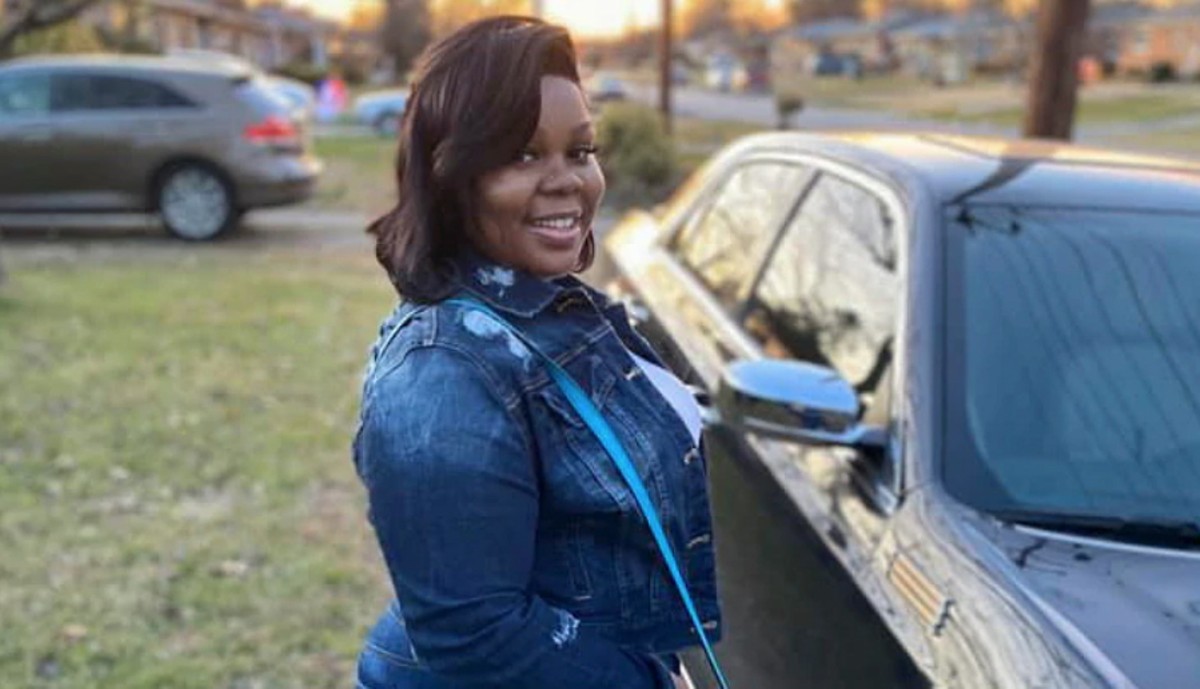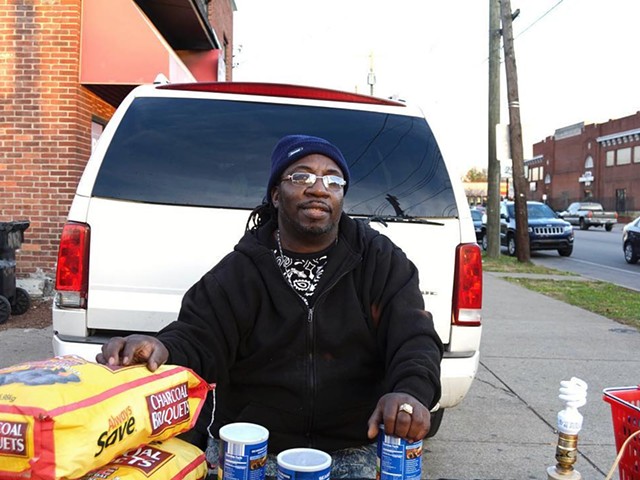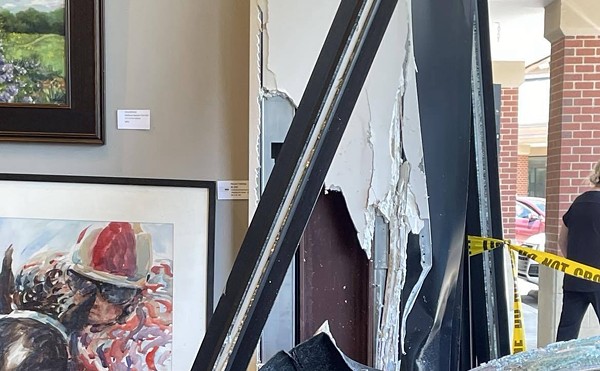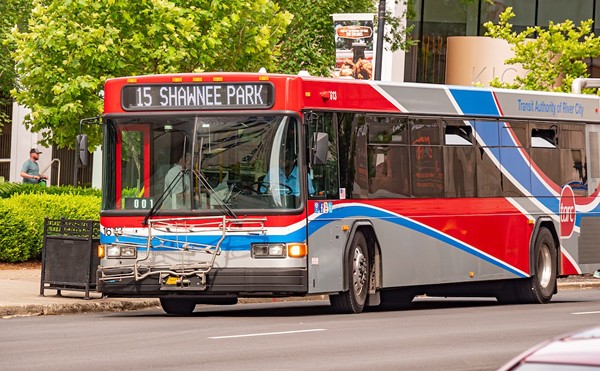March 13, 2022, marked the second anniversary of the death of Breonna Taylor — a 26-year-old Black woman murdered in her home by the Louisville Metro Police Department (LMPD). Many people have reached out to me for my thoughts on what I believe we have gained in the wake of Breonna Taylor’s death and the subsequent protests in Louisville during 2020.
It is an interesting way to frame the question, “What have we gained?” This question is often asked by people who do not look like me. People were never concerned about the police forcefully entering their homes, people who do not worry every time a police officer drives behind them. People who aren’t concerned that a minor traffic stop could have life or death consequences. People who exist in a different Louisville than I or someone like Breonna ever did. The question makes me think of Professor Blyden Jackson’s statement in “Life Behind A Veil:” “Through a veil, I could perceive the forbidden city, the Louisville where white folks lived. It was the Louisville of the downtown hotels, the lower floors of the big movie houses, the high schools I read about in the daily newspapers, the restricted haunts I sometimes passed, like white restaurants and country clubs, the other side of windows in the banks, and of course the inner sanctums of offices where I could go only as a client or a menial custodian. On my side of the veil, everything was Black: the homes, the people, the churches, the schools, the Negro park with the Negro park police…I knew that were two Louisvilles and, in America, two Americas. I knew also which America was mine.” After the tragic death of Breonna Taylor and the war-like tactics in response to the protests, Louisville has made it abundantly clear which Louisville is mine.
Louisville has reminded me that it is yet another city in the long line of cities where the lives of Black women are expendable. This city has reminded me that Black women will be asked to labor to transform this city with little to no reward. Daily, I am reminded that leaders will ask for our labor, disregarding the laborious undertaking that Black women shoulder trying to right a city that still refuses to face the historical and current ramifications of racism. How many times must Black women fix it — often at the expense of ourselves. When I wrote “Breonna Taylor: Say Her Name,” I said, “I have to march for you not to kill me. And now you are asking me to teach you how not to kill me.” And now, in 2022, you are asking me what we have gained? I will never forget that Breonna’s mother, Tamika Palmer, said, “For her, every day is March 13.” Every. Single. Day. So how do I look at her and tell her what we have gained?
Truthfully, I believe the better, perhaps more meaningful question, is to ask Black people, particularly Black women, what have we lost? What…have…we …lost? There are things that are gone in this city that I do not believe we will ever get back. Something in this city has broken. Any sense of security I may have felt, as minimal as it may have been, is gone. I was once asked how often do I think about Breonna Taylor? I think about her all the time. My own daughter is named Brianna. She is 26. I look at her sometimes and think about the dread I would feel if her life was snatched away from me and no one was held accountable. Every time I ride downtown, I remember being teargassed. The images flash in my mind of police in full riot gear, armored trucks pumping out teargas as innocent people sat in the street with signs that declared, “Justice for Breonna.” How do we even begin to process the collateral damage from the murder of Breonna Taylor? I remember the pain, almost tangible, that hung heavy over the crowd gathered in the West End as one of their beloved community members, David McAtee, lay dead outside of his place of business for hours, killed by the National Guard. I remember going away trying to drum up the enthusiasm to celebrate my birthday only to get the news that Tyler Gerth, a local photojournalist, was killed in Injustice Square Park. I was stunned to go on Facebook and read the news that activist Travis Nagdy, who we all knew would be a force to be reckoned with in this city, was killed. I still feel the ripples of 2020.
The impact of what happened on March 13, 2020, drew a faultline through this city.
So, when will it be enough?
There will be no time in my existence that I will ever look at the death of Breonna Taylor and the aftermath and say, ‘Look how far we have come, look at how much we have accomplished.’ I see what was left in the wake of these so-called reforms. 2020 impacted my life in so many ways that I am just beginning to unpack two years later. The emotional toll has been tremendous.
Why must the road to reform be paved with our bodies, bones and blood?
Why must we fight through rage before we ever get to redemption? At what point will America do the right thing simply because it is long overdue to do the right thing? How long do you think feeding us minuscule morsels of justice will satiate our palates?
Do you think we feel any safer? Do you think we believe that Officer Friendly exists for people that look like us? Do you think we no longer feel a tightness in our chest when the police pull behind us on the road? Do you think we aren’t concerned anymore about a minor traffic stop having life or death consequences? Do you think this city has been reformed for the better since 2020? Do you think we won’t be here again because of some reforms? As journalist Ernest Owens wonderfully demonstrated by sharing the Police Reform Flowchart, created by Brett Hamil, we are in a deadly cycle that we refuse to break.
After the world watched George Floyd be murdered on social media as Officer Derek Chauvin placed his knee on Floyd’s neck until he cried out for his deceased mother, Minneapolis passed police reforms. Perhaps some even thought they would never be in that situation again. And less than two years later, Amir Locke was murdered in his Minneapolis home by the police.
So while we did pass Breonna’s Law in Louisville banning no-knock warrants, I cannot help but turn my eyes to Amir Locke, killed in a home, similarly to Breonna Taylor, by officers within the Minneapolis Police Department while he was trying to sleep. I watched the conversation online after Locke’s murder and people were confused, thinking that no-knock warrants had been banned after the murder of George Floyd. In fact, with “reform,” the police just got a workaround. The Saint Paul Police Department applied for a “knock and announce” warrant, and the Minneapolis police department insisted on a no-knock warrant, according to the St. Paul Police Department. According to Rachel Moran, associate professor at the University of St. Thomas School of Law, “In November 2020, Minneapolis Mayor Jacob Frey announced a new policy regulating MPD’s use of no-knock warrants, which has been referred to as a ‘ban’ (including by Frey’s campaign), and did not actually affect the knock requirement at all. What Mayor Frey’s November 2020 policy did was require Minneapolis police in most situations to announce their presence before crossing the threshold into a residence. So, they could open the residence without knocking, but they were then required to announce their presence before crossing the threshold.”
That is the problem with reforms. There is no true reform when police can ignore or circumvent them. When you reform something, you make changes in order to improve what already exists. However, when you transform something, you change something into something else. A part of justice for Breonna and George and Amir and countless others isn’t more empty reforms. It is transformation. It is not even reimagining policing. It is transforming an entire system that was birthed out of slavery. How do I get people to understand it is not a few bad apples? The tree’s roots are corrupt. The soil has been tainted with the blood of innocent people throughout history. You do not reform this. You must work to create something entirely new. And that isn’t done by covering up bad systems with passive reforms to placate the people demanding justice. This isn’t solely about system reform. It is so much deeper than that. This is about personal soul transformation. This is about individual inner work. The system and the reforms are only as good as the people.
There is no silver lining when I look at the murder of Breonna Taylor and the aftermath. So, when I am asked, “What have we gained?” — please know for me, no matter what reforms come after a young Black woman has been murdered in her home by the police while she was trying to sleep, it will never be a glass half full type of situation.






